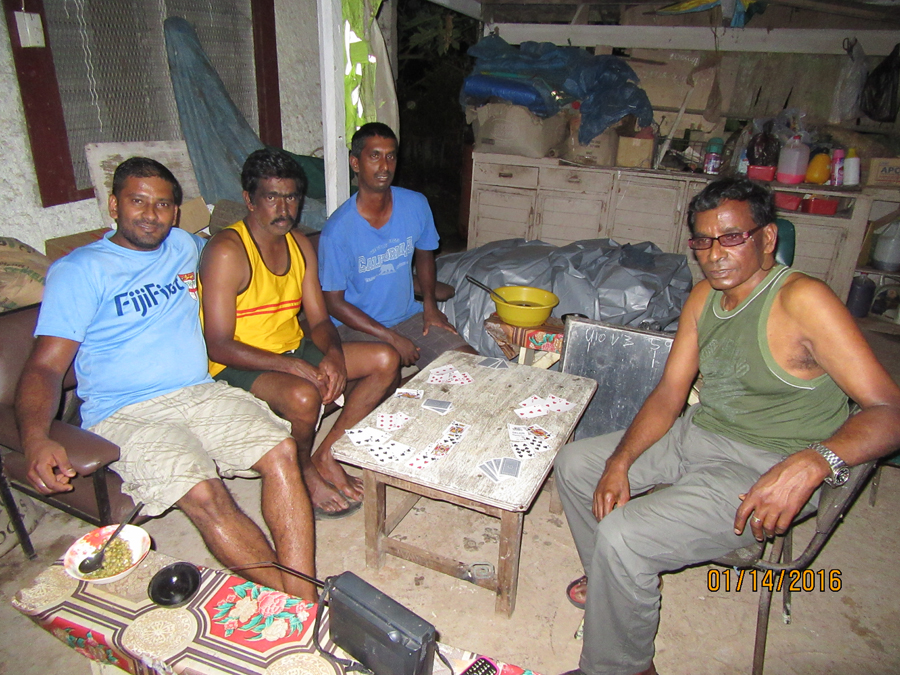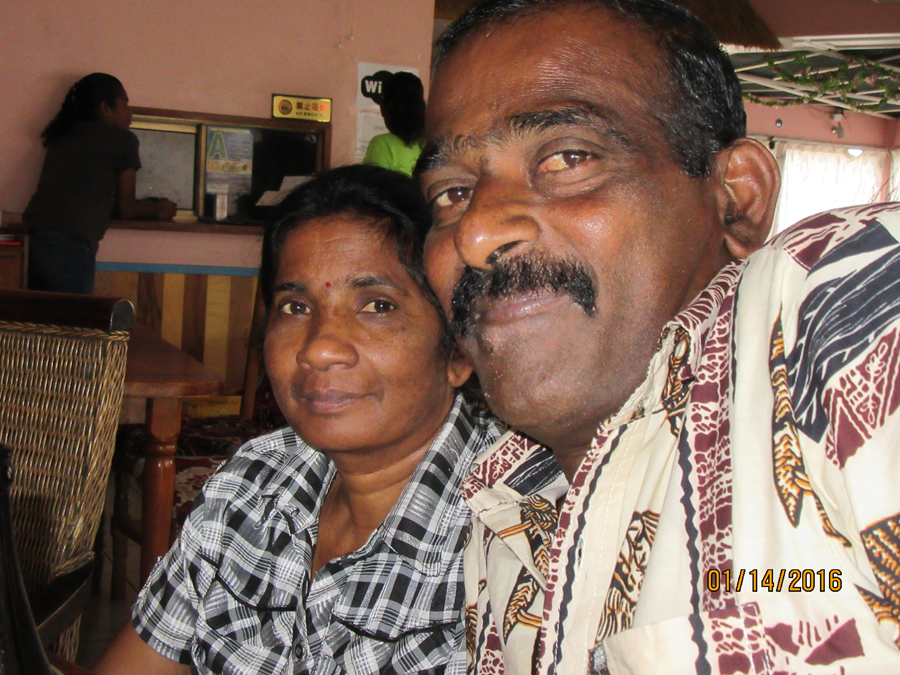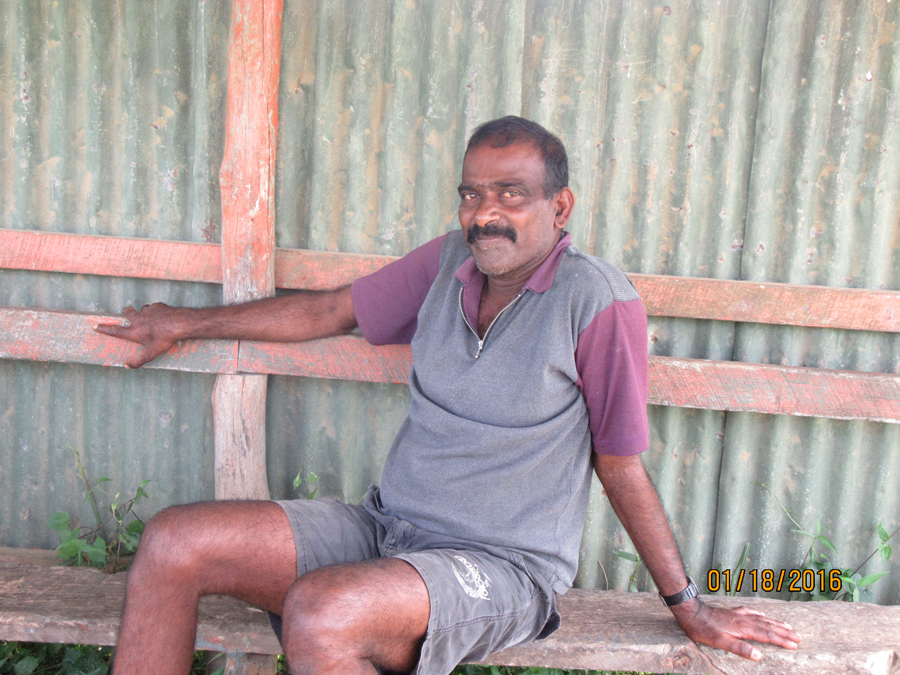My Indian Fathers in Fiji
By Fr Kurt Zion Pala
Father Kurt was ordained in his native Iligan City, Mindanao on 21 November 2015. After his ordination he spent some months in Our Lady of Remedies Parish, Malate, Manila, before moving to the Columban house in Cagayan de Oro City where he has been involved in vocation work, mission promotion and fundraising. He will be leaving for his new assignment in Myanmar early this year.
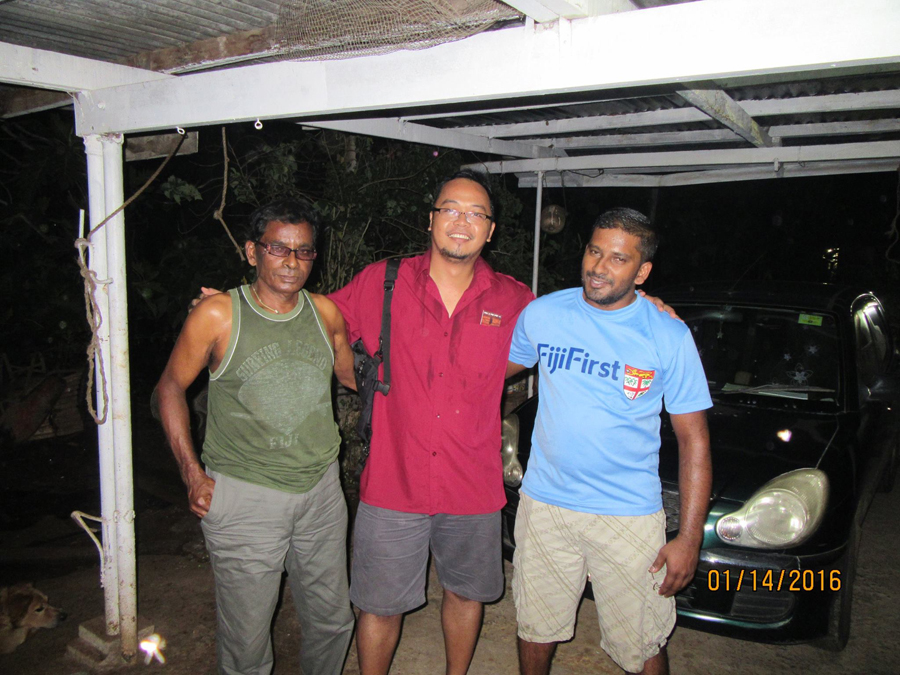
Father Kurt, center, with Abba Sam Daniel and Reverend Roneel Avinay
‘“Abba”, call me that,’ my host father responded when I asked him how I should call him. ‘Abba’ is the Hindi (Indian) word for ‘father’. Sam Daniel would be my third host-father in Fiji. He is Anglican and lives with his wife near their church. They have a son, Roneel, who is now an Anglican priest. Abba works as the school manager of the Anglican Church-run schools in Labasa. He would wake up to feed the chickens. After breakfast he would drive me to the Catholic church for my Hindi lessons and he would report to school. In the afternoon, we would then meet at a small shop near the school and have small talk with his friends. In the evening some of the neighbors would come over and we would have a game of cards and enjoy a big bowl of kava.
A card game in Abba Sam Daniel’s home
I attended Anglican services together with the family. What I enjoyed most was the singing of hymns at the beginning of the liturgy. I would sit with the musicians and sing my heart out. Abba loves his Indian TV drama series. We would watch these together series in the evening just before going to bed. I lived with Abba’s family for almost a month before moving to the parish.
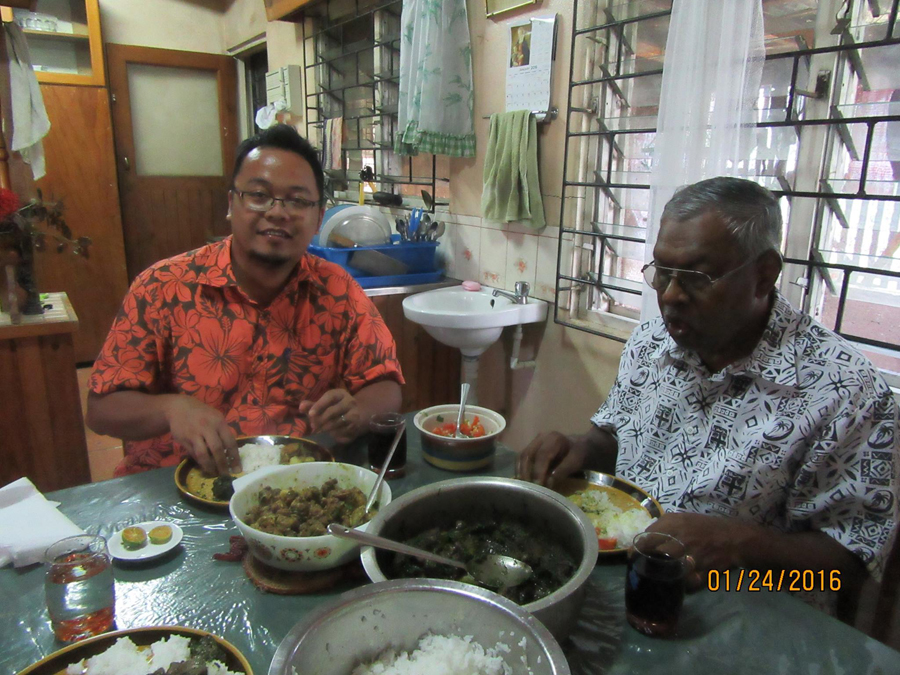
Enjoying lunch with Uncle Bale
Homestay is an important component of being a student missionary. The best way to learn the language and culture of the country we are sent to is to live with a family from as short as a week to as long as six months. Like Indians, Filipinos never call their elders by their first names. So the first thing I did is to familiarize my relationship to people around me as they are related to me being the ‘son’ of the family I am living with. For most of my two years in Fiji I lived with three families at different stages of my assignment.
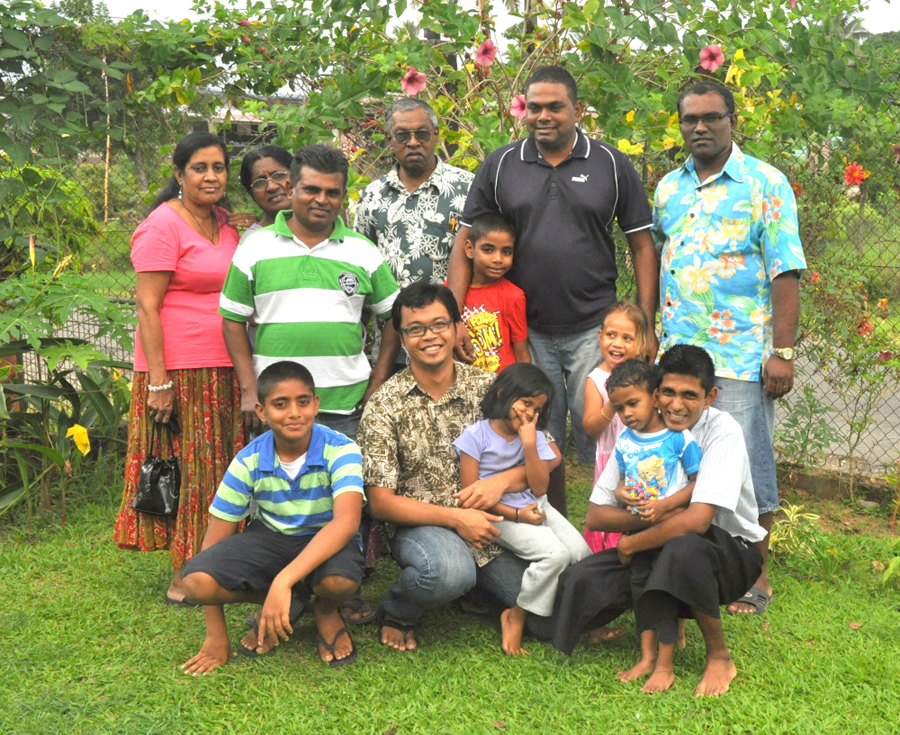
With members of Nadera Mandali
The first family I lived with, during my first six months in Fiji, was that of Ignatius Balkisun (Bale) and Pauline Rosy. They have two daughters, Bernie, a dentist and Pat, a teacher. Pat and her husband live with the couple while Bernie lived on her own in Suva. Most of the day I was alone with Uncle Bale and Auntie Pauline. The family belongs to the Nadera Mandali group, a form of Basic Christian Community. Families take turns hosting the Friday prayer meetings. I would accompany the couple to these prayer meetings and to Sunday Mass.
Auntie Mary and Uncle Bhola
After six months of urban exposure in Suva, the Fijian capital, I moved to the northern island of Vanua Levu. For my rural exposure, I lived with the Reddy family in the hills of Naleba, Labasa. Sanmogan, and Mary Reddy (Uncle Bhola and Auntie Mary) have three children, all teachers now. I stayed with them for almost all of my six months on the island. I was introduced as a son of the family and so in the village, I related to everyone either as their nephew, grandchild or uncle. And I had to learn every name to call them ‘Ajja’, ‘Ajji’ (Grandfather, Grandmother), ‘Mama’, ‘Mami’ (Uncle, Aunt) and so on. We did many things together. Sanmogan introduced me to many of his friends, not only Catholics but Hindu and Muslim neighbors. I had a most interesting time in Naleba. During my last few days there I noticed he was very quiet and seldom spoke to me. As I was about to leave he embraced me tightly and sobbed. It felt great to be considered a son.
Uncle Bhola
These were my Indian fathers - Uncle Bale, Uncle Bhola and Abba. They were not perfect but they were faithful fathers. They were hardworking but knew how to enjoy life and share their blessings with others. Just like my father, they were not very expressive of their feelings, especially of affection, and showed everyone they were independent and strong. But I felt privileged to indulge myself with their love. And they reminded me of my own father who taught me to pursue in life what makes me happy and to never stop following my dream.
Salamat, Tay! Thank you, Uncle Bale, Uncle Bhola and Abba.
Fr Jung Euikyun Carlo and Fr Kurt Zion Pala in Fiji as seminarians
Father Carlo was ordained in Seoul on 1 November 2014 and Father Kurt in Iligan City on 21 November 2015
Persons to watch for in the video.
The video was shot in Naleba, in Paharkhala where Father Kurt lived, and in Karokaro where Father Carlo lived with another family.
2:58-3:07 Kurt met by Uncle Bhola
4:01-4:36 Playing cards with Uncle Bhola and featuring Auntie Mary.
11:30 – 11:51 Drinking kava / yaqona with Uncle Bhola. [Yaqona is pronounced ‘yangGOna’]

